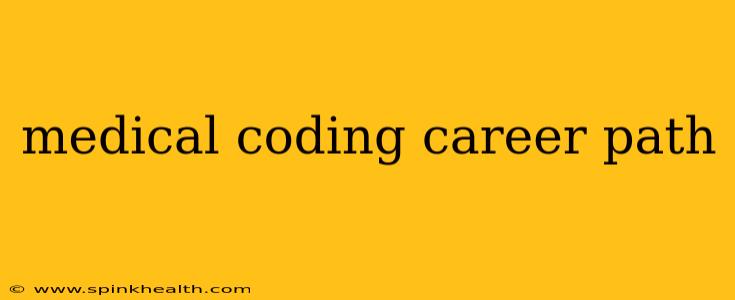Decoding the Future: Your Journey into a Medical Coding Career Path
The world of healthcare is complex, a vast network of diagnoses, procedures, and treatments. At its heart, ensuring accurate and efficient communication is crucial – and that's where medical coders step in. Their work is the invisible backbone supporting the entire healthcare system, translating medical information into a universal language understood by insurance companies, hospitals, and other stakeholders. But what does a medical coding career path actually look like? Let's unravel this fascinating field.
My name is Sarah, and I've been a medical coder for over a decade. I've seen firsthand the rewards and challenges of this profession, and I'm excited to share my insights to help you navigate your own potential path.
What is Medical Coding, and Why is it Important?
Medical coding is the process of converting medical diagnoses, procedures, and services into standardized alphanumeric codes. These codes, primarily based on the ICD (International Classification of Diseases) and CPT (Current Procedural Terminology) systems, are essential for billing, reimbursement, data analysis, and public health tracking. Imagine trying to manage a hospital's finances without a clear, concise system for tracking every procedure and diagnosis – it would be utter chaos! Medical coders are the unsung heroes who bring order to this complex landscape.
What are the Different Types of Medical Coding Jobs?
The medical coding field offers diverse roles, catering to various interests and skill levels.
-
Inpatient Coder: These coders work with patient records from hospitals and focus on diagnoses and procedures related to hospital stays.
-
Outpatient Coder: These coders handle medical records from clinics, doctor's offices, and other outpatient settings.
-
Surgical Coder: Specializing in surgical procedures, these coders require a deep understanding of surgical techniques and related terminology.
-
Auditor: Auditors review coded records for accuracy and compliance with regulations, ensuring proper reimbursement.
-
Medical Coding Specialist: These professionals may hold a higher level of certification and often have additional supervisory or management responsibilities.
What Education and Certification is Needed to Become a Medical Coder?
What educational background do I need to become a medical coder? Many medical coders begin with an associate's degree in health information technology or a related field. However, a strong foundation in anatomy, physiology, and medical terminology is essential. Many community colleges and online programs offer certificate or associate's degree programs specifically designed for aspiring medical coders.
What certifications are available for medical coders? Several reputable organizations offer certifications, such as the American Academy of Professional Coders (AAPC) and the American Health Information Management Association (AHIMA). These certifications validate your skills and knowledge, enhancing your job prospects and earning potential.
What is the Job Outlook for Medical Coders?
Is there a high demand for medical coders? Absolutely! The demand for skilled medical coders continues to grow due to the increasing complexity of healthcare and the expanding use of electronic health records (EHRs). The Bureau of Labor Statistics projects significant job growth in this field for the foreseeable future.
What is the average salary for a medical coder? Salaries vary depending on experience, location, certification, and employer. However, generally speaking, medical coders enjoy competitive salaries and benefits packages.
What are the Daily Tasks of a Medical Coder?
What does a typical day look like for a medical coder? A typical day involves reviewing patient medical records, abstracting relevant information, assigning appropriate codes, and ensuring accuracy and compliance with industry standards. This requires meticulous attention to detail and a strong understanding of medical terminology and coding guidelines. You might also participate in quality assurance reviews, collaborate with other healthcare professionals, and stay updated on the latest coding regulations and updates.
How Can I Stay Current With Medical Coding Changes?
How do I stay updated on changes in medical coding regulations? The healthcare landscape is constantly evolving, with regular updates to coding systems and regulations. To stay current, continuous professional development is crucial. This includes attending industry conferences, participating in online training programs, and actively following updates from organizations like the AAPC and AHIMA.
Embarking on a medical coding career path is a rewarding journey. With dedication, the right education, and a passion for accuracy, you can build a successful and fulfilling career in this essential field. The path may seem complex, but with the right guidance and commitment, you'll be well on your way to decoding the future of healthcare.

